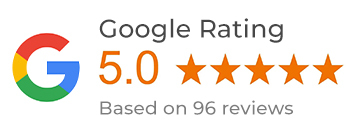We all love to see the Dallas-Fort Worth Metroplex grow and thrive. As a business headquartered in DFW, Home Tax Solutions is happy when the communities around us become safer, more beautiful, and better for all. Unfortunately, what looks like progress on the surface often translates into gentrification, which can lead to displacement for many Texas homeowners who find themselves struggling to pay property taxes or increasing rents in developing communities where home taxes are suddenly skyrocketing. In this blog, we’ll take a closer look at the effects of gentrification on property taxes and the steps you can take to stay on top of an increasing property tax bill.
What is Gentrification?
Gentrification occurs when wealthier investors and property owners enter a community and quickly make significant improvement to properties, build new residences, attract new businesses, and otherwise grow and develop a community in a short time. In the process, current residents are often displaced as they can no longer afford the rising cost of living in the community.
How Does Gentrification Impact Property Taxes?
Gentrification leads to higher property values as the neighborhood becomes more desirable. Even though Texas places a cap on the increase in appraised value of homes from year to year, property values can jump up 10% each year. That means over the course of just five years, a home’s value could increase by as much as 50%, leading to a significant increase in property taxes for many homeowners. Within just a few years, people may find themselves no longer able to cover the cost of property taxes for their home.
How Can Homeowners Keep Up with Their Rising Property Taxes?
First and foremost, Texas caps increases in the appraised value of properties at 10% each year, so if your home’s appraised value on this year’s property tax bill is more than 10% higher than last year, you need to dispute your property’s appraised value.
Even a 10% increase can raise your property tax bill by hundreds or thousands of dollars, so if the property value has increased by 10% or less, you may want to look into disputing the appraised value of your property. Even if the neighborhood around you is doing better, that doesn’t mean your home has significantly improved. In fact, maybe your property value has actually decreased due to damage or wear and tear. Maybe the gentrification has caused increased traffic on your once quiet, residential street. Take a look at your location, the state of your home, and other factors and file a protest with the Appraisal Review Board.
Additionally, you should make sure to attend any meetings where your local government is reviewing their annual budget, especially if they are voting on the proposed cost of running the government for the year. These budgets directly impact your property tax bills, so it’s important to stay on top of what they’re proposing and speak up if you disagree.
Finally, if you know that property values are going to increase due to gentrification, start planning now. Set aside extra money each month to put toward property tax bills. If you don’t have the extra money in your budget, it may be time to talk to Home Tax Solutions about property tax loan options.
Need Help Covering the Cost of Increasing Property Taxes?
This year, many counties have seen a dramatic increase in property taxes due to the rise in property values. Areas that are experiencing gentrification were hit even harder by these spikes in home values. If you’re struggling to cover the cost of your property taxes this year, reach out to the Home Tax Solutions team by completing our online application form. When we receive your information, one of our team members will be in touch to talk about your options for property tax loans to help you cover the cost and avoid unnecessary fees and interest.



